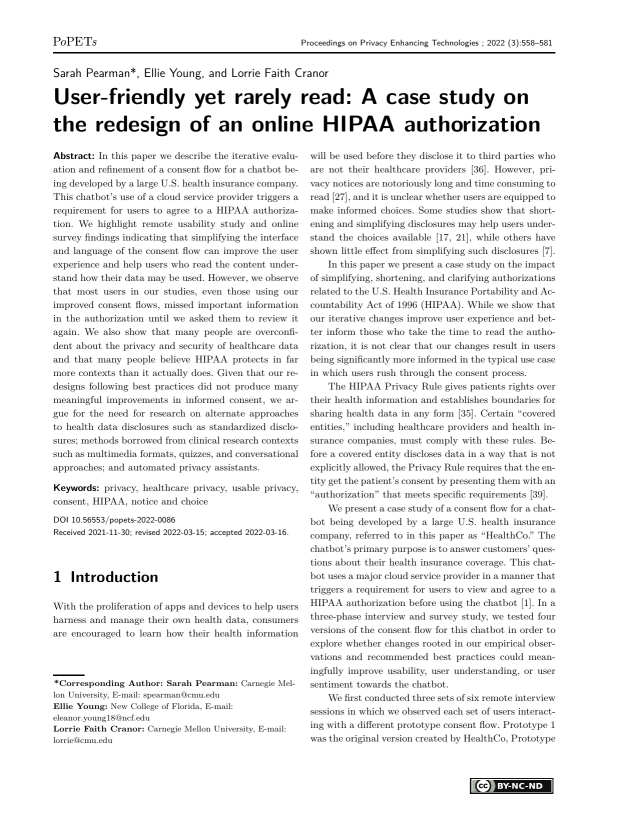User-friendly yet rarely read: A case study on the redesign of an online HIPAA authorization
Authors: Sarah Pearman (Carnegie Mellon University), Ellie Young (New College of Florida), Lorrie Faith Cranor (Carnegie Mellon University)
Volume: 2022
Issue: 3
Pages: 558–581
DOI: https://doi.org/10.56553/popets-2022-0086
Abstract: In this paper we describe the iterative evaluation and refinement of a consent flow for a chatbot being developed by a large U.S. health insurance company. This chatbot’s use of a cloud service provider triggers a requirement for users to agree to a HIPAA authorization. We highlight remote usability study and online survey findings indicating that simplifying the interface and language of the consent flow can improve the user experience and help users who read the content understand how their data may be used. However, we observe that most users in our studies, even those using our improved consent flows, missed important information in the authorization until we asked them to review it again. We also show that many people are overconfident about the privacy and security of healthcare data and that many people believe HIPAA protects in far more contexts than it actually does. Given that our redesigns following best practices did not produce many meaningful improvements in informed consent, we argue for the need for research on alternate approaches to health data disclosures such as standardized disclosures; methods borrowed from clinical research contexts such as multimedia formats, quizzes, and conversational approaches; and automated privacy assistants.
Keywords: privacy, healthcare privacy, usable privacy, consent, HIPAA, notice and choice
Copyright in PoPETs articles are held by their authors. This article is published under a Creative Commons Attribution-NonCommercial-NoDerivs 3.0 license.


